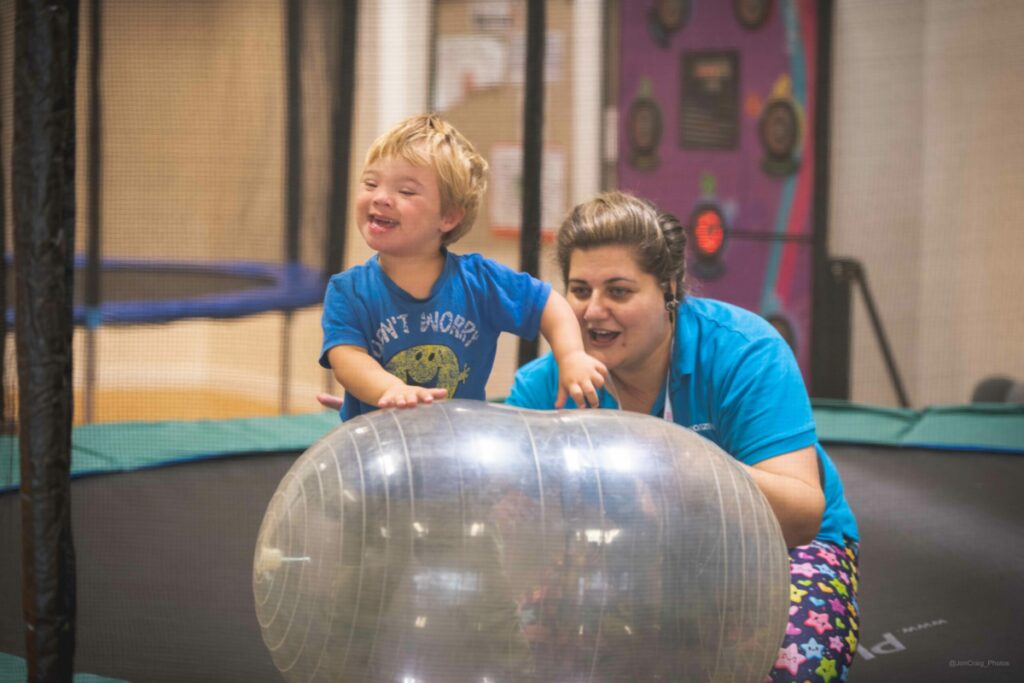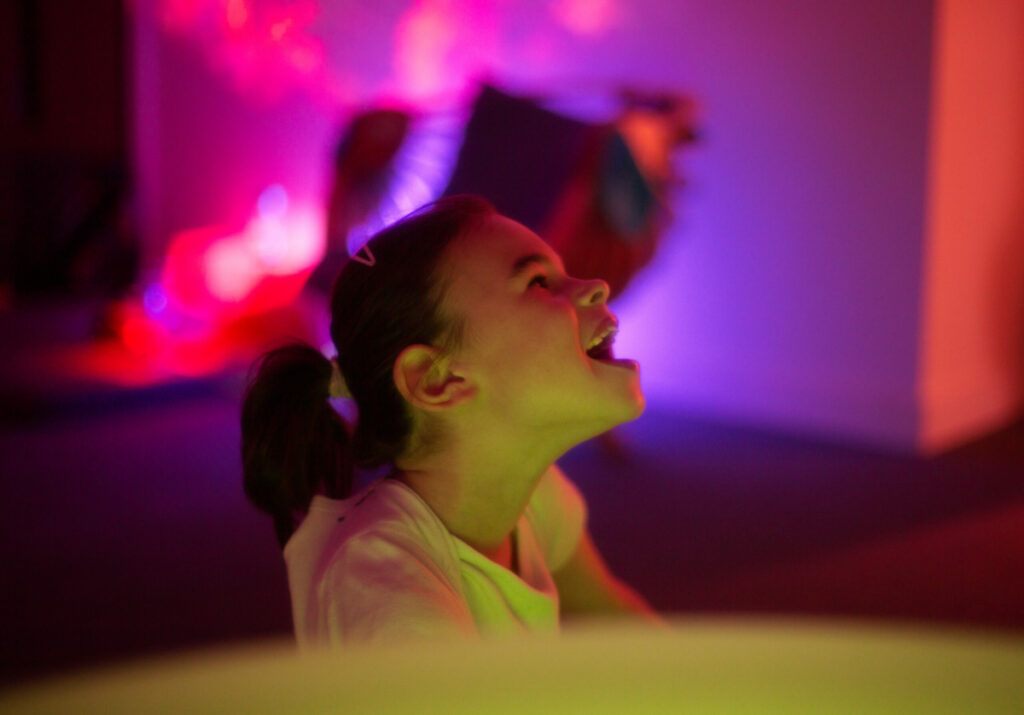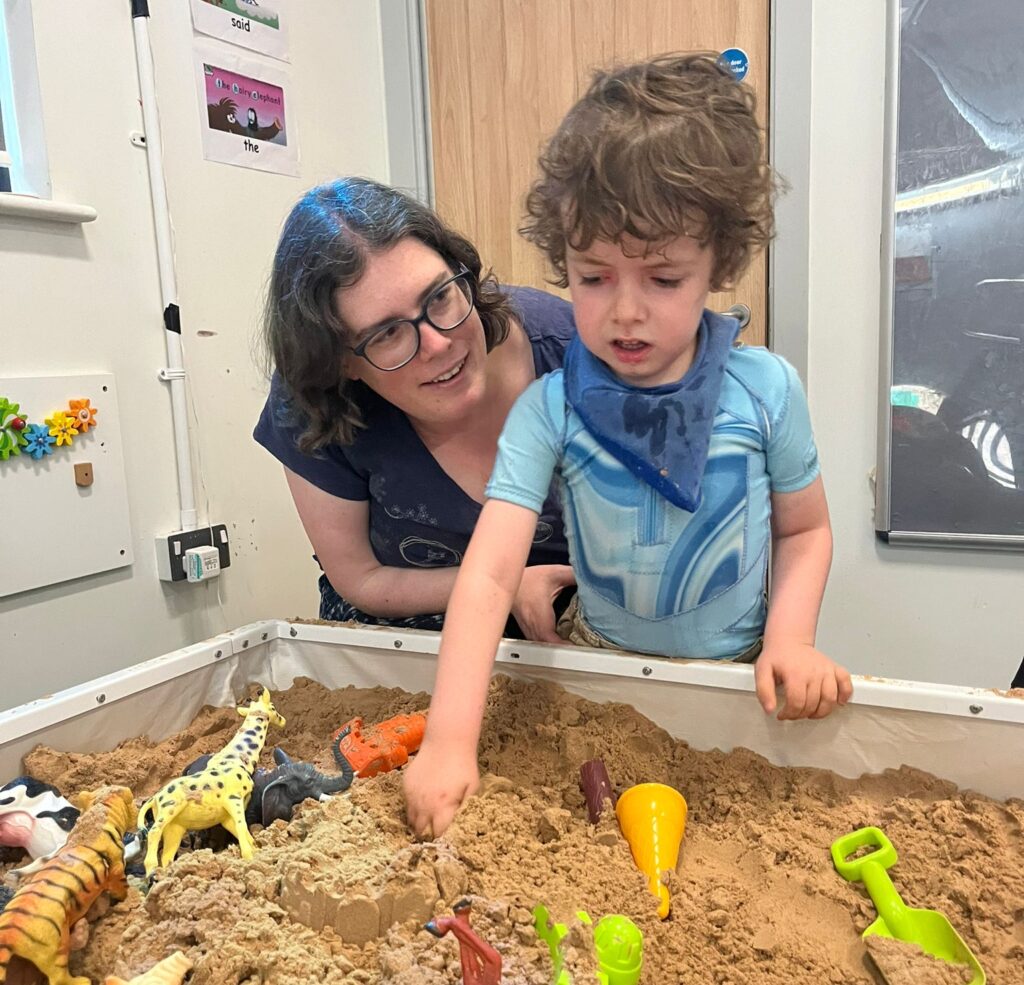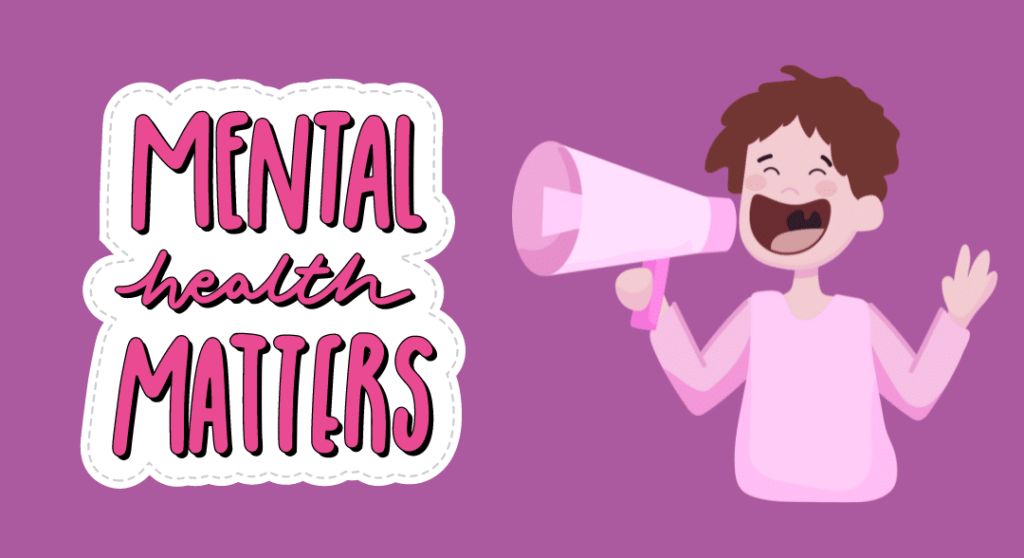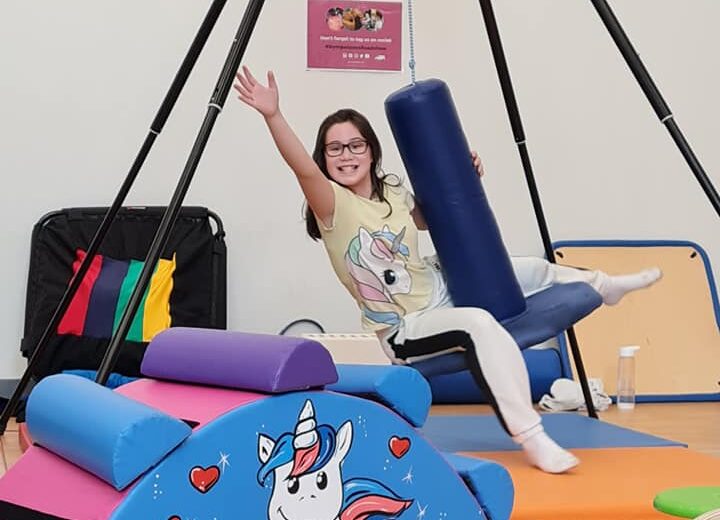“This is paradise”, shouted CJ, a 10-year-old autistic boy bouncing up and down on the trampoline at the Gympanzees Summer Pop Up in Bristol. CJ was obviously delighted at the sense of freedom he got from bouncing, but what CJ didn’t know was he was simultaneously developing his interoceptive system.
But what is interoception?
Interoception, the eighth sense, often known as the ‘hidden sense’, is the sense that tells us what is happening inside our bodies. Have you ever felt the rumbling in your stomach when hungry or muscle ache when you’re tired?
Sensory processing issues are quite common for children and young people with disabilities. Children can often be either over-responsive to interoceptive inputs, e.g., they may have a stronger reaction to pain, or they might be under-responsive to interoceptive inputs and may not feel pain until it’s already at an intense level.
Our interoceptive system is also linked to our emotions. For example, when we feel anxious, we experience butterflies in our stomach, or when we feel angry, our muscles tighten. It is far more difficult for children and young people with sensory processing difficulties to identify and self-regulate these emotional states. For those who struggle to identify their physical needs, like feeling tired, hungry, thirsty, in pain or needing to go to the bathroom, this can also cause emotional distress and discomfort.
How does Gympanzees help?
Gympanzees Pop-Up play facilities are designed with therapists and specialist teachers to provide play, exercise and social opportunities for disabled children and young people, but there are also so many other hidden health benefits.
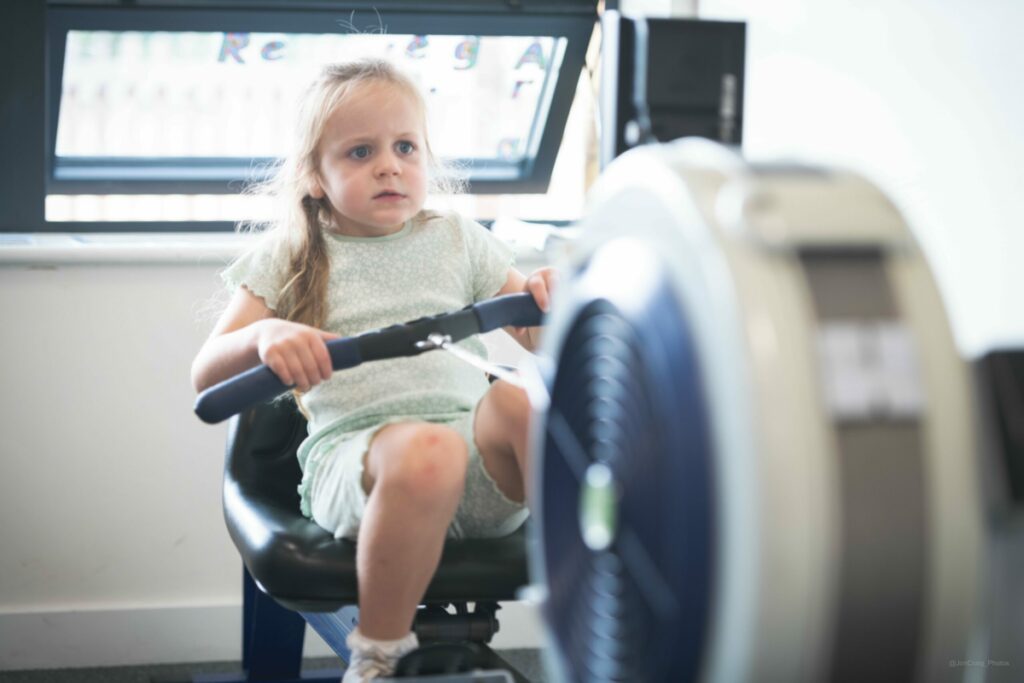
At Gympanzees, children and young people can work on their interoception as they are given the choice to feel stuff out, try new things and see how it makes them feel. By bouncing on a trampoline, children will feel their heart racing and know what breathing fast feels like. Doing heavy work in the gym involves large muscles in the body, which helps develop proprioception, which is good for body awareness and interoception. Rooms like the calm sensory room provide a calm atmosphere that helps children pay attention to what is happening inside their bodies.
With several accessible rooms to choose from, parents are encouraged to let children lead the way and choose what they need at that moment. It’s like the parents become sensory detectives led by their children, learning what works for their child.
Catherine Williams, an Independent Paediatric Occupational Therapist, said
“Having access to a safe environment like Gympanzees where children can take risks like bouncing higher or have a completely new experience, like a wheelchair user being able to go on a go-kart for the first time, has huge benefits not only for an individual’s self-esteem and sense of autonomy but also their ability to recognise sensations within and learn what they mean.”
Paediatric Physiotherapist, CEO, and Founder of Gympanzees, Stephanie Wheen, said
“A child on a swing at the last Pop Up decided they were enjoying it so much they asked for more and more! But after too many swings they felt sick in their stomach and wanted to stop. The child understood that internal sensation of feeling sick and will now be able to recognise it in future.”
Understanding their interoceptive system helps children learn how to self-regulate. When children are regulated, they are in a much better state to learn and cope with everyday events such as going in the bath, eating dinner, and even sharing the TV with siblings.
Stephanie Wheen, said
“We’ve seen amazing results of children learning to self-regulate. We had a 5-year-old who slept through the night for the first time after her session, and we even had an 8-year-old who ate up in public for the first time.”
The Gympanzees Pop Up’s will return this Easter with inclusive fun and fitness for all. Find out more about the Pop Ups.
